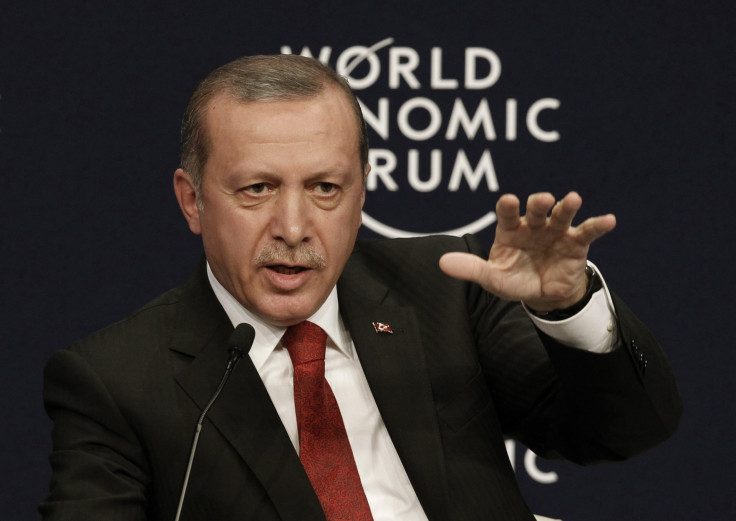Turkey Switches Rhetoric On Fight Against ISIS, Calls For No-Fly Zone

ISTANBUL, Turkey -- In his first public address in country since the release of 49 hostages held by Islamic State extremists, President Recep Tayyip Erdogan said Turkey officially would join the international coalition fight against ISIS, but said it must rethink and implement policies in coordination with the United Nations.
“Turkey will not remain outside of this coalition,” Erdogan said. “The coalition that is being formed now cannot only focus only on Iraq. It must target Iraq and Syria.” But airstrikes in Iraq and Syria, he said, are not enough. “They will only provide a temporary solution.” He called on the international community to implement a no-fly zone, a buffer zone and increase finances to train and equip groups in Iraq and Syria though he did not specify which.
Until now, Erdogan has implemented what he called Sunday at the World Economic Forum in Istanbul a “careful approach” in addressing the ISIS crises. His rhetoric about the crisis, though, changed in his speech Sunday when he denounced claims his administration was supporting the Sunni militant group though he did not provide details about how the hostages were released or if the government paid ransom.
Erdogan blamed other coalition members for not providing the support needed to aid the humanitarian crisis on Turkey’s border. For more than three years, Turkey has hosted hundreds of thousands of refugees fleeing the civil war in Syria. There are now more than 1.5 million Syrian refugees in Turkey, Erdogan said, and the majority of the funding of refugee aid and assistance has come from Turkey, not the U.N.
“Nobody seems to say or ask how they can help Turkey. There are also social ramifications, but no one else seems to be concerned,” he said, adding Turkey would “take the necessary steps” to ensure the security of its border.”
In the past week, thousands of refugees from Kobane, a Kurdish town in Syria, have fled fighting between Kurdish forces and ISIS. The fighting is ongoing and while the massive outpouring of Syrians into Turkey seems to have slowed, Turkish security forces are having trouble maintaining the flow of people and resources in and out of the border.
In conversations with the International Business Times, Syrian activists have said ISIS uses border crossings in the northwestern part of the country and one in the northeast near Jarabolus to transport fighters, weapons and oil into Turkey. The group is purportedly transporting oil through the border and selling it on the black market in Turkey, producing about $3 million a day. U.S. airstrikes in Syria are targeting ISIS oil refineries, but it is unclear what impact, if any, the attacks are having on the militant group's finances.
© Copyright IBTimes 2025. All rights reserved.





















